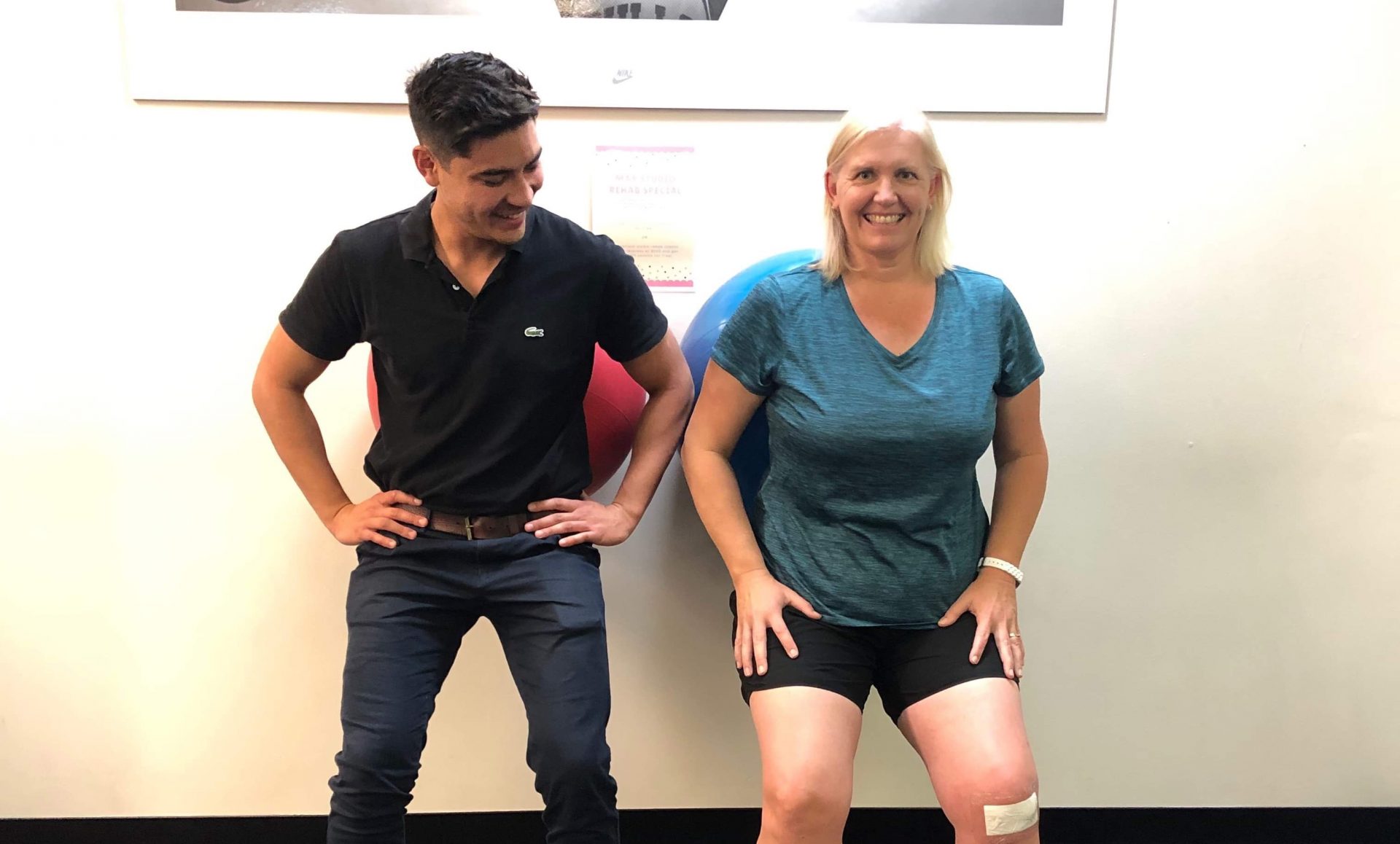If you’ve decided to have an ACL operation, here are a few tips from my own experience.
The current evidence strongly supports having a short period of time between ACL injury and ACL reconstruction. 4-6 weeks of ‘prehab’ has shown to result in improved outcomes following ACL reconstruction.
I’ve personally found this to be very effective and would advise that you discuss this with your surgeon and physiotherapist.
Focus on achieving full knee extension
- Your surgeon will strongly encourage you to focus on achieving a straight knee. Most patients come in concerned that they are not getting enough knee flexion (bend), however, this will typically improve gradually over time. Failing to achieve full extension in the early stages of your rehab will potentially pose greater long-term issues.
- Prone knee hangs – This exercise, although it can be quite unpleasant at the time is certainly one of the most effective at regaining full knee extension. Start with ~ 5 minutes and increase to 10-15 minutes as tolerated, adding weight if possible
- If you’ve had a hamstring-graft, hamstring tendon pain may limit your ability to perform a prone knee hang. This can be balanced out with isometric hamstring exercises.
Focus on improving your ability to contract and activate your VMO
- This is one of the muscles in your quadriceps. Improving activation of your VMO is incredibly important to allow you to progress to the next stages of your rehabilitation.
- Starting this in your prehab prior to surgery will help
- Work closely with your physio in the early stages if you’re
having difficulty. Electrical stimulation using a TENS machine is something your physio can provide to help you along
Forget about time-frames
- The most common questions surgeons and physios get following ACL reconstructions include
- Should I be further along at this stage?
- When can I go back to running?
- When can I return to sport?
- All valid questions, however, the reality of it is – everyone progresses slightly differently.
- The answer to this is – when you’re ready, you’re ready. If this means you don’t run till 15 weeks instead of 12, so be it. If you’re not able to perform a certain exercise at a given stage, we’ll find you something different for the time being. There is no perfect recipe for your rehabilitation. Your physio will work for you to determine what is going to work for YOU.
- At the 6-week mark following surgery, the graft is at its weakest. Immediately following surgery the knee will feel quite stable. Care should be taken through the 6-10 week period with daily activities.
- In regards to returning to the sport, going back before 12 months can be done, but there is certainly a higher risk of re-injury. My advice – believe me, you don’t want to do this twice. Delaying your return to sport beyond 12 months significantly reduces the risk of re-injury.
Join a gym!
- If you don’t already have a gym membership or access to weights, a stationary bike and a leg press – get one!
- Much of your rehab can be done at home with minimal equipment in the early stages, however, it becomes much easier to deliver the best rehab with access to gym equipment.
- If you’re new to the gym setting, it can be a bit daunting. Doing
a supervised session with your physiotherapist or under the guidance of a good personal trainer will be hugely beneficial not only for your rehab but for maintaining good health in the future.
The main message I’d like to get across is that the decision making for ACL management must be individualised and made on a case-by-case basis. I’ve gone down both pathways, both with positive and negative experiences.
Finally, although it’s a pretty rough injury to deal with, it’s not the end of the world.
The rehabilitation process you’ll undertake to get back to the sport will help to reduce the risk of many other injuries associated with poor hip and knee stability.
If you’ve never done resistance training in your lifetime, you’re about to begin a form of exercise that will reduce your risk of osteoporosis, arthritis, heart disease, depression and lower back pain just to name a few.
If you have any questions about your ACL injury or rehabilitation, please feel free to ask me at [email protected].
Trust your physiotherapist and work closely with them. They are experts in injury rehabilitation and will get you to where you want to be.

